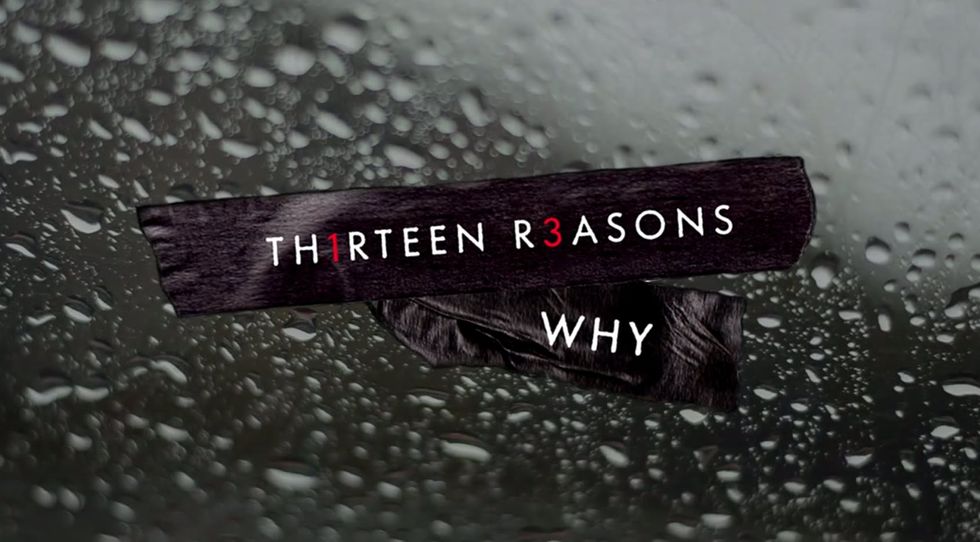I read Thirteen Reasons Why years ago before it was popular. When I read it, I was going through a tough time. The story of Hannah Baker is one that I think everyone needs to hear. Just because Thirteen Reasons Why was fiction doesn’t mean that there aren’t people going through what Hannah did. Sure, the show varied from the book, but I think it was an excellent portrayal of it.
The episodes of the show were organized well, based on the tapes that Hannah made before she committed suicide. Each tape, which was an episode, focused on a specific person that played a role in Hannah decision to end her life. Seeing the reactions of each person to what was said on the tapes was everything from heartbreaking, to frustrating, to infuriating. The book and show both focused on Clay’s reaction, the boy that didn’t really belong on those tapes but needed to know why Hannah ended her life. From the beginning, Clay was heartbroken, even before hearing the tapes. At times he couldn’t bring himself to listen.
Clay showed the aftermath of suicide. He was the boy that didn’t see it coming but was completely torn up by it. Hannah didn’t think he would have the reaction that he did. At times, he felt more guilty than the others that pushed Hannah to her breaking point. Some people that commit suicide may not think that their actions will affect people as much as they do. Clay is a prime example of it. Hannah knew that Clay was in love with her, but didn’t think that she was good enough for him. She thought so highly of him but didn’t realize that taking herself away from him would cause him more pain and damage than being with him. A lot of people that fall victim to suicide don’t realize how it affects those around them.
In Hannah’s case, she made it known who she blamed for her death. In a lot of cases, it’s left to speculation. Although each of those people were on the tapes, they still blamed others more than themselves. There are consequences of every action, but placing blame isn’t the way to approach it. There were things that pushed her more than others, or were much bigger, but that doesn’t make any of them less important.
The portrayal of some of the most difficult parts were some of the most moving. The rape scenes, specifically, brought me to tears. The show shined a new light on rape and sexual assault. Many people spend their lives thinking that this kind of thing doesn’t happen in their community, but the truth is, it might. Actually, it most likely does. Maybe not to the extent that it did to Jessica and Hannah, but it still does. People like Bryce and Justin and Tyler do exist, and they might seem like normal people. They could be disguised as the captain of the football team, or the valedictorian, or prom queen, or even the person that sits next to you in math class that seems like your Average Joe. You just never know.
Hannah’s death scene was also extremely painful to watch. It seemed so real. You felt like you were there. You could feel her pain in the moment and see the fear in her eyes. Katherine Langford did a phenomenal job of bringing Hannah’s character to life. When her parents came into the bathroom, you could feel their pain too, seeing their daughter like that. The victims of suicide might not think about the person or people that will find them and the effect it will have on them. It destroyed them. It would destroy anyone in their position.
At the end of the show, there is a scene of EMTs in and ambulance with a 17-year-old boy with a gunshot wound to the head. For a while, you wonder who it is. Tyler bought a gun in a sketchy back alley. Justin stole a gun from his apartment before he left. Clay hadn’t returned home from Bryce’s yet. Alex’s dad was a cop. Jessica was able to get into her father’s gun safe. Who shot who? Was it self-inflicted? Did someone give Bryce what they thought that he deserved? Was there something else? You don’t find out until the very end that it was Alex who shot himself in the head, an attempt at his own suicide.
The final episode is a rundown from the cast, crew, and other professionals. It goes over the warning signs and what you can do to help those in crisis. They talk about sexual assault and consent. It puts a spotlight on the other options other than suicide. It didn’t feel like one of those PSAs that they'd show you in an assembly in high school. This episode felt more real than those. If you only watch one episode of the entire season, watch the last episode.
Sometimes it feels like you have no way out, that nothing is going to get better. That’s how Hannah Baker felt. There is a brighter tomorrow. It may not feel like it in the moment, but with the right help, things can get better. It’s OK not to be OK and it's OK to get help. It doesn’t make you weak. It makes you a stronger person to fight through it.
National Suicide Prevention Hotline: Call 1-800-273-8255
National Sexual Assault Hotline: Call 1-800-656-4673

















